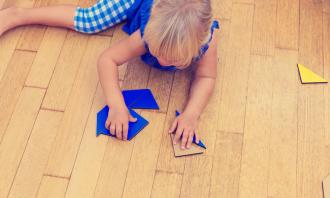Critical thinking used to be part of the curriculum at most schools. To be able to think logically was considered part of the structure necessary for learning and retaining knowledge, along with comprehension and understanding. However, over time focus has shifted to other areas of development, and that might not necessarily be a good thing.
Being able to reason is, really, an essential step in the way we acquire knowledge. Reasoning skills allow us to infer, and draw conclusions from various forms of data presented to us, and sadly, it is rarely formally taught these days. So, do we cross our fingers and hope that logic is something our children will come to learn through other areas of their life?
Learning logic
It is true, children will acquire some logic skills simply through the everyday things we do.
Look left, look right, and if there are no cars coming we can safely assume it is safe to cross the road. That is logic.
And, in science and geometry lessons logic forms a large part of the lesson structure. However, applying those logical skills to every day life are another thing altogether.
Critical thinking is a skill that helps in every aspect of life.
Reading writing and arithmetic are important, of course, but it is simply not enough to memorise facts. Learning to understand a given situation is a more important skill than memory alone, and that’s why logic is such an important part of learning.
Importantly, teaching logic has no negative impact on creativity. It is possible to have skills in both areas!
As we move deeper into the digital age, logic becomes even more necessary in life as coding and computers become the realm of everyone, not just your friendly IT worker.
How can you teach logic?
Fisher-Price are aware that logic is an important part of development, and more and more toys - like the super clever Fisher-Price Code-A-Pillar - are inspiring logic lessons from an early age.
The Code-a-Pillar is one of the new Think & Learn toys from Fisher-Price that goes beyond ABCs and 123s to help children learn how to think independently. Built for hands-on adventures, Code-a-pillar™ teaches children from three years plus to develop important skills like planning, sequencing and critical thinking. Pre-schoolers can have fun arranging and rearranging the easy-to-connect segments in endless combinations, sending Code-a-pillar™ on his adventurous path. The result is a toy that kids will have heaps of fun using, while cleverly engaging them in hands-on, open-ended discovery that helps them become lifelong learners.
Puzzles and brainteasers are also triggers for strategy and reasoning.
Books, at their age level, that encourage reasoning, such as mysteries, are also a great way to engage critical thinking.
In a nutshell, the other areas of development are essential but, really, logic, sequencing, planning and critical thinking are just as important and worth your time to teach.
The post was brought to you by the Fisher-Price Code-a-Pillar.






















